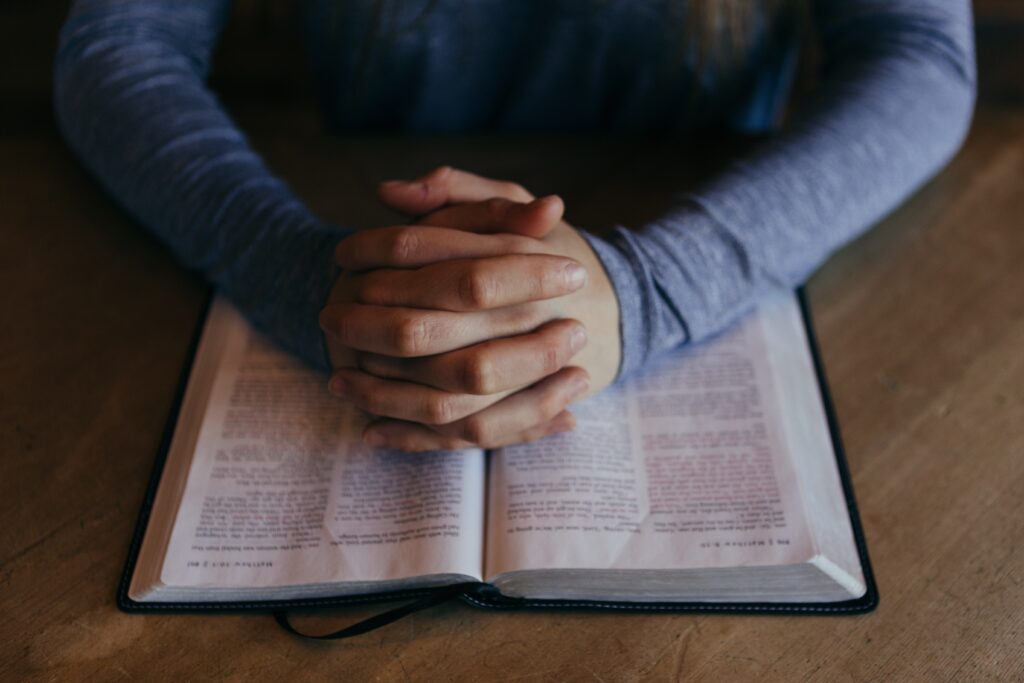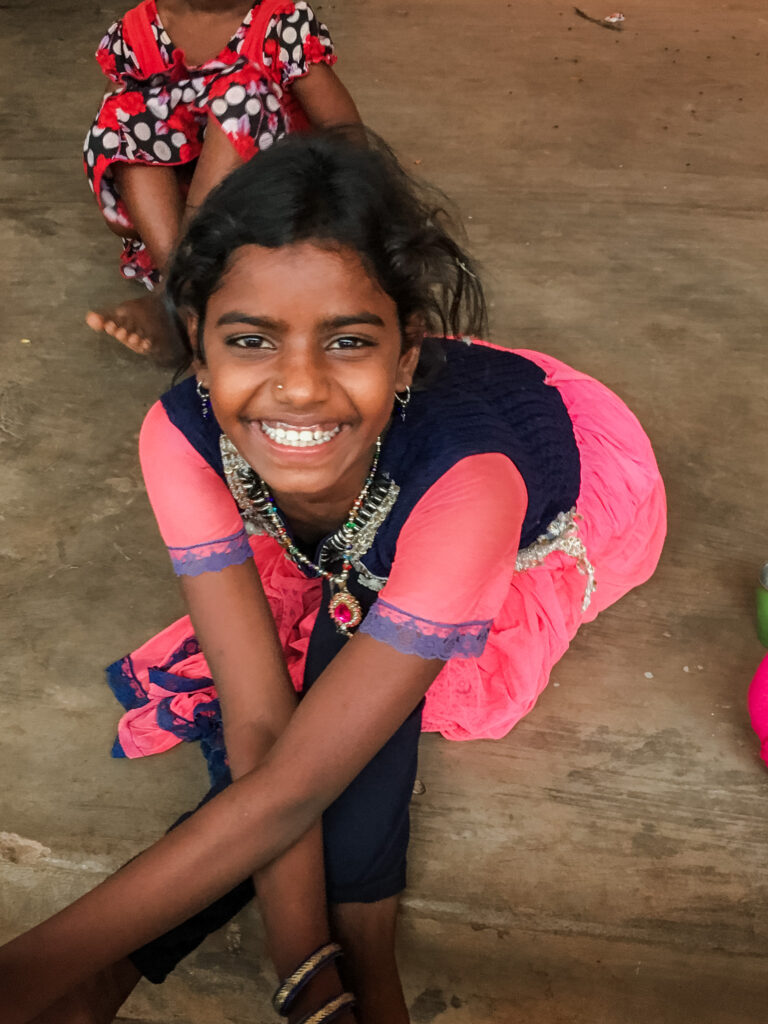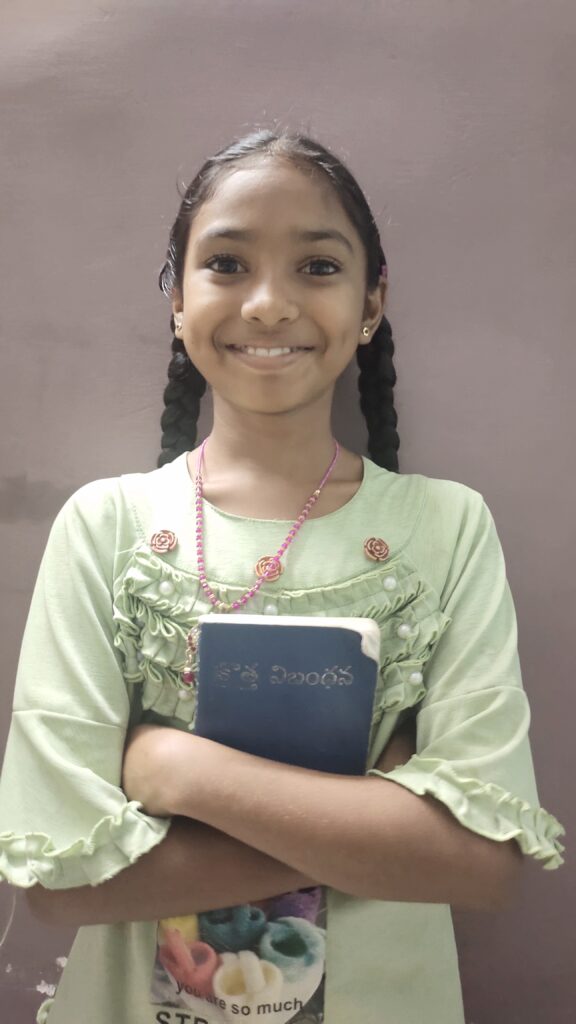Top Bible Verses on Widows and Orphans & Ideas for How to Help

Have you ever wondered what the Bible says about helping orphans and widows? Does Scripture say God takes care of widows and orphans? Are there Bible verses on widows and orphans that teach Christians to help them?
There are actually a lot of Bible verses on widows and orphans in the Holy Scriptures! We can learn exactly what God thinks about orphans and widows and how he wants us to help them.
In this article, you will find a list of Scripture on widows and orphans from the Old and New Testament. Following each list is a summary about what the Bible verses teach about God and taking care of orphans and widows. Finally, this article concludes with some ideas for helping orphans and widows in your community, and overseas.
Understanding the Definition of Orphans and Widows in the Bible
Before we begin, however, it is important to discuss a biblical understanding of who widows and orphans are in the Bible.
Who Are Widows in the Bible?
We are probably familiar with the Merriam-Webster definition for widows: “a woman who has lost her spouse by death and has not remarried.” But who are widows according to the Bible?
According to Encyclopedia.com, a widow in the Bible is understood in the following way:
The Hebrew substantive almanah, usually translated “widow,” often does not simply denote a woman whose husband is dead, but rather a once-married woman who has no means of financial support, and is therefore in need of special legal protection. Many widows would fall into such a classification because of their husbands’ death, but others who could rely on the support of a new husband (by levirate marriage or otherwise), an adult son, or a father-in-law, would not. Thus, the almanot as a class in Israelite society in biblical times were often considered as comprising not merely women whose husbands had died but, rather, once-married women who no longer had any means of financial support.
Encyclopedia.com
The biblical definition of a widow is more nuanced than our dictionary definition of a widow. This is because it highlights the particular financial vulnerability of this class of women. Without a husband to protect her and provide for her, it was more difficult for a widow in ancient times to make ends meet. Childless widows faced an even more uncertain future, as they had no sons to carry on the family name or provide for them into their old age.
Some examples and stories about widows in the bible include Tamar (Genesis 38) and the widow of Zarephath (1 Kings 17).
What about the famous “widows” in the Bible: Ruth, Orpah, Naomi, Abigail and Bath-Sheba? While we often refer to them as widows in the Bible, they are never referred to as almanot, the word translated as widow. For this reason, there is question as to whether they were regarded as widows in the biblical sense, i.e. once-married women without financial support.
Who are Orphans in the Bible?
The standard dictionary definition of an orphan is “a child whose parents are dead.” How does this compare to the biblical definition of an orphan?
In the Old Testament the Hebrew word yathom (Greek orphanos) is translated in Scripture as either “orphan” or “fatherless child.” This biblical definition of an orphan is a little broader than our standard dictionary definition as it includes those who are considered fatherless.
The term fatherless is particularly important in our discussion. This is because it includes the children whose fathers are dead or absent. In biblical times, women traditionally did not own or work property, so when the father was dead or absent, it had dramatic consequences for their family’s well-being and ability to make ends meet.
The biblical orphan is a combination of today’s definition of a “true orphan,” a child with no living parents, and a “social orphan.” A social orphan is one who loses their parents due to poverty, mental illness, alcoholism, drugs or some other hard reality where one or both parents are still alive, but unable to care for the child. These children are vulnerable and need outside help in order to thrive.
Ready to Learn What the Bible Says About Widows and Orphans?
Now that you understand the biblical definitions for widows and for orphans, we can move on to learning some important bible verses on widows and orphans! If you have an interest in a particular section of the Scripture on widows and orphans, feel free to use the table of contents below to jump ahead!
Jump to A Section
Bible Verses on Widows and Orphans in the Old Testament
What Does God Say About Widows and Orphans in the Old Testament?
New Testament Scripture on Widows and Orphans
What Do the Bible Verses on Orphans and Widows from the New Testament Mean?
How Does God Want Us To Respond to These Bible Verses on Widows and Orphans?
Learn How to Help Widows and Orphans in Your Community
How to Help Widows and Orphans Overseas
Do You Want to Help Take Care of Orphans and Widows in India?
Bible Verses on Widows and Orphans in the Old Testament
All Old Testament Bible verses on widows and orphans are from The Message version unless otherwise noted.
Exodus 22:22
“Don’t mistreat widows or orphans. If you do and they cry out to me, you can be sure I’ll take them most seriously; I’ll show my anger and come raging among you with the sword, and your wives will end up widows and your children orphans.
Deuteronomy 10:14-18
Look around you: Everything you see is God’s—the heavens above and beyond, the Earth, and everything on it. But it was your ancestors who God fell in love with; he picked their children—that’s you!—out of all the other peoples. That’s where we are right now. So cut away the thick calluses from your heart and stop being so willfully hardheaded. God, your God, is the God of all gods, he’s the Master of all masters, a God immense and powerful and awesome. He doesn’t play favorites, takes no bribes, makes sure orphans and widows are treated fairly, takes loving care of foreigners by seeing that they get food and clothing.
Deuteronomy 14:28-29
At the end of every third year, gather the tithe from all your produce of that year and put it aside in storage. Keep it in reserve for the Levite who won’t get any property or inheritance as you will, and for the foreigner, the orphan, and the widow who live in your neighborhood. That way they’ll have plenty to eat and God, your God, will bless you in all your work.
Deuteronomy 16:9-11
Starting from the day you put the sickle to the ripe grain, count out seven weeks. Celebrate the Feast-of-Weeks to God, your God, by bringing your Freewill-Offering—give as generously as God, your God, has blessed you. Rejoice in the Presence of God, your God: you, your son, your daughter, your servant, your maid, the Levite who lives in your neighborhood, the foreigner, the orphan and widow among you; rejoice at the place God, your God, will set aside to be worshiped.
Deuteronomy 16:13-15
Observe the Feast-of-Booths for seven days when you gather the harvest from your threshing-floor and your wine-vat. Rejoice at your festival: you, your son, your daughter, your servant, your maid, the Levite, the foreigner, and the orphans and widows who live in your neighborhood. Celebrate the Feast to God, your God, for seven days at the place God designates. God, your God, has been blessing you in your harvest and in all your work, so make a day of it—really celebrate!
Deuteronomy 24:17-18
Make sure foreigners and orphans get their just rights. Don’t take the cloak of a widow as security for a loan. Don’t ever forget that you were once slaves in Egypt and God, your God, got you out of there. I command you: Do what I’m telling you.
Deuteronomy 24:19-22
When you harvest your grain and forget a sheaf back in the field, don’t go back and get it; leave it for the foreigner, the orphan, and the widow so that God, your God, will bless you in all your work. When you shake the olives off your trees, don’t go back over the branches and strip them bare—what’s left is for the foreigner, the orphan, and the widow. And when you cut the grapes in your vineyard, don’t take every last grape—leave a few for the foreigner, the orphan, and the widow. Don’t ever forget that you were a slave in Egypt. I command you: Do what I’m telling you.
Deuteronomy 26:12-13
Every third year, the year of the tithe, give a tenth of your produce to the Levite, the foreigner, the orphan, and the widow so that they may eat their fill in your cities. And then, in the Presence of God, your God, say this: I have brought the sacred share, I’ve given it to the Levite, foreigner, orphan, and widow. What you commanded, I’ve done. I haven’t detoured around your commands, I haven’t forgotten a single one.
Deuteronomy 27:14-26
God’s curse on anyone who interferes with justice due the foreigner, orphan, or widow. All respond: Yes. Absolutely.
Psalm 68:5-6
Father of orphans, champion of widows, is God in his holy house. God makes homes for the homeless, leads prisoners to freedom, but leaves rebels to rot in hell.
Psalm 146:3-9
Don’t put your life in the hands of experts who know nothing of life, of salvation life. Mere humans don’t have what it takes; when they die, their projects die with them. Instead, get help from the God of Jacob, put your hope in God and know real blessing! God made sky and soil, sea and all the fish in it. He always does what he says— he defends the wronged, he feeds the hungry. God frees prisoners— he gives sight to the blind, he lifts up the fallen. God loves good people, protects strangers, takes the side of orphans and widows, but makes short work of the wicked.
Jeremiah 7:1-7
The Message from God to Jeremiah: “Stand in the gate of God’s Temple and preach this Message. “Say, ‘Listen, all you people of Judah who come through these gates to worship God. God-of-the-Angel-Armies, Israel’s God, has this to say to you: “‘Clean up your act—the way you live, the things you do—so I can make my home with you in this place. Don’t for a minute believe the lies being spoken here—“This is God’s Temple, God’s Temple, God’s Temple!”
Total nonsense! Only if you clean up your act (the way you live, the things you do), only if you do a total spring cleaning on the way you live and treat your neighbors, only if you quit exploiting the street people and orphans and widows, no longer taking advantage of innocent people on this very site and no longer destroying your souls by using this Temple as a front for other gods—only then will I move into your neighborhood. Only then will this country I gave your ancestors be my permanent home, my Temple.
Jeremiah 22:1-3
God’s orders: “Go to the royal palace and deliver this Message. Say, ‘Listen to what God says, O King of Judah, you who sit on David’s throne—you and your officials and all the people who go in and out of these palace gates. This is God’s Message: Attend to matters of justice. Set things right between people. Rescue victims from their exploiters. Don’t take advantage of the homeless, the orphans, the widows. Stop the murdering!
Ezekiel 22:6-12
“‘Your leaders, the princes of Israel among you, compete in crime. You’re a community that’s insolent to parents, abusive to outsiders, oppressive against orphans and widows. You treat my holy things with contempt and desecrate my Sabbaths. You have people spreading lies and spilling blood, flocking to the hills to the sex shrines and fornicating unrestrained. Incest is common. Men force themselves on women regardless of whether they’re ready or willing. Sex is now anarchy. Anyone is fair game: neighbor, daughter-in-law, sister. Murder is for hire, usury is rampant, extortion is commonplace. “‘And you’ve forgotten me. Decree of God, the Master.
Zechariah 7:7-10
“There’s nothing new to say on the subject. Don’t you still have the message of the earlier prophets from the time when Jerusalem was still a thriving, bustling city and the outlying countryside, the Negev and Shephelah, was populated? [This is the message that God gave Zechariah.] Well, the message hasn’t changed. God-of-the-Angel-Armies said then and says now: “‘Treat one another justly. Love your neighbors. Be compassionate with each other. Don’t take advantage of widows, orphans, visitors, and the poor. Don’t plot and scheme against one another—that’s evil.’
Malachi 3:5
“Yes, I’m on my way to visit you with Judgment. I’ll present compelling evidence against sorcerers, adulterers, liars, those who exploit workers, those who take advantage of widows and orphans, those who are inhospitable to the homeless—anyone and everyone who doesn’t honor me.” A Message from God-of-the-Angel-Armies.
What Does God Teach Us from the Old Testament Scripture On Widows and Orphans?
The Old Testament portrays God as the father and provider of the orphan and the widow. God also expects his people to participate in taking care of widows and orphans. From the Bible verses above, we can see that God commanded the people to treat orphans and widows fairly. He also commanded his people to provide for their needs by leaving food for them in the fields and dedicating a special tithe to them every third year. God’s care for those who can’t care for themselves is evident through these bible verses on widows and orphans.
Additionally, these scripture on widows and orphans show us that God is also portrayed as the defender of the orphan and the widow. He strongly condemns those who take advantage of the orphans and widows, and will visit them with judgement.
New Testament Scripture on Widows and Orphans
All New Testament Bible verses on widows and orphans are from The Message version unless otherwise noted.
1 Timothy 5:3-8
Take care of widows who are destitute. If a widow has family members to take care of her, let them learn that religion begins at their own doorstep and that they should pay back with gratitude some of what they have received. This pleases God immensely. You can tell a legitimate widow by the way she has put all her hope in God, praying to him constantly for the needs of others as well as her own. But a widow who exploits people’s emotions and pocketbooks—well, there’s nothing to her. Tell these things to the people so that they will do the right thing in their extended family. Anyone who neglects to care for family members in need repudiates the faith. That’s worse than refusing to believe in the first place.
1 Timothy 5:9-11
Sign some widows up for the special ministry of offering assistance. They will in turn receive support from the church. They must be over sixty, married only once, and have a reputation for helping out with children, strangers, tired Christians, the hurt and troubled.
1 Timothy 5:16
Any Christian woman who has widows in her family is responsible for them. They shouldn’t be dumped on the church. The church has its hands full already with widows who need help.
Acts 6:1-4
During this time, as the disciples were increasing in numbers by leaps and bounds, hard feelings developed among the Greek-speaking believers—“Hellenists”—toward the Hebrew-speaking believers because their widows were being discriminated against in the daily food lines. So the Twelve called a meeting of the disciples. They said, “It wouldn’t be right for us to abandon our responsibilities for preaching and teaching the Word of God to help with the care of the poor. So, friends, choose seven men from among you whom everyone trusts, men full of the Holy Spirit and good sense, and we’ll assign them this task. Meanwhile, we’ll stick to our assigned tasks of prayer and speaking God’s Word.”
James 1:27 [HSCB]
Pure and undefiled religion before our and Father is this: to look after orphans and widows in their distress and to keep oneself unstained by the world.
What Do the Bible Verses About Widows and Orphans from the New Testament Mean?
The New Testament scriptures continue to demonstrate God’s care for widows and orphans. And the bible verses on widows and orphans from the New Testament continue to affirm his desire for us to be involved in that care.
The book of Acts demonstrates that caring for widows was an important task. It was not to be neglected, but to be carried out by wise, Spirit-filled people. Paul instructs the church in the letter to Timothy to care for destitute widows. He also instructs Christians to care for the widows in their own families. Finally, the Letter of James says that true religion is to care for widows and orphans in their distress.
How Does God Want Us To Respond to These Bible Verses on Widows and Orphans?
God wants us to share his heart for the orphan and the widow. These scriptures from the Bible show that God wants us to care for and provide for orphans and widows. He places special emphasis on helping those who are a part of the church and our family of origin.
How to Help Widows and Orphans In Your Community
So how can we help widows and orphans? One way to help widows and orphans is by getting to know the people in your church and your community. Be intentional to build relationships with your neighbors across the street. Say hello or invited them over for a cup of tea! You can also get to know your neighbors across town by serving with local food pantries or nursing homes. Simply getting to know the people in your area is a great way to meet widows and orphans and to learn about their needs.
As you get to know your neighbors and church members, you will discover those who are alone or in need. In doing so, however, you will already be helping to meet some of their needs! One need that widows and orphans share is quality time and loving relationships! You can also help widows and orphans in your community by making prayer for them a part of your regular prayer time.
Finally, you can check to see if there are any established organizations in your local area designed to help the elderly, widows or orphans. Partnering with them through service or giving would be a great place to start if you have a heart for helping widows and orphans.
How to Help Widows and Orphans Overseas
If you want to help widows and orphans outside of your local community, consider partnering with a reputable non-profit organization. There are a number of organizations designed to help widows and orphans, so take your time to research. You will want to find a reputable organization whose values and mission most closely aligns with your passion to help widows and orphans.
Do You Want to Help Take Care of Orphans and Widows in India?

At Cornerstone World Missions, we take seriously the Bible verses on widows and orphans. As a result, we are actively taking care of orphans and widows in India. Our sponsor a child program tends to the physical and spiritual needs of orphans and fatherless children in India. Additional support is also provided for local widows.
Do Feel Inspired by these Scriptures on widows and orphans and want to help?
You can put your faith into action by acting on these bible verses about widows and orphans! One way to do this is by partnering with us. If you want to learn more about how we are taking care of orphans in India, please visit our Child Sponsorship page. If you feel passionate about helping orphans and widows, we would love for you to partner with us! You can also help orphans and widows in India through your prayer or giving.


